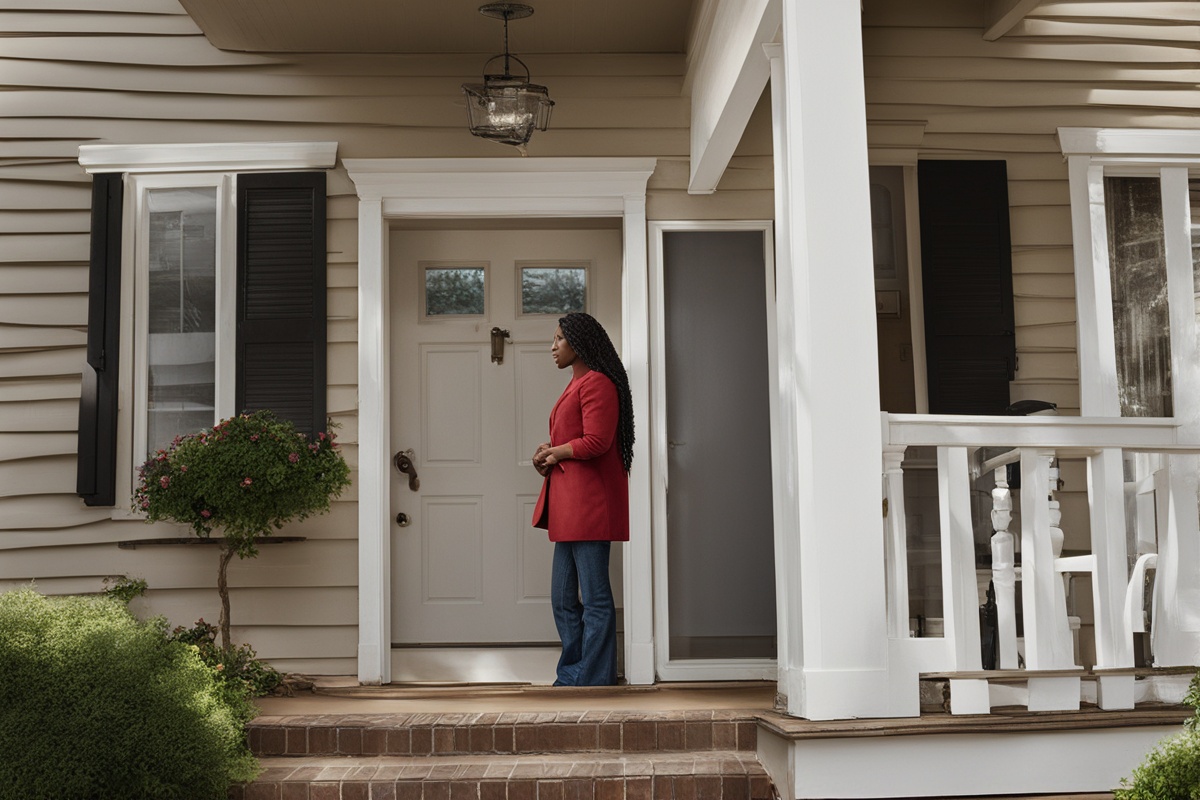Losing a loved one is one of the most profound experiences a person can face, and as a homeowner, the emotional challenges that follow can feel even more complex. Your home, often a sanctuary of memories, can become a place of both comfort and pain as you navigate grief. This post explores the journey of navigating emotional challenges after loss, offering insights, strategies, and support for homeowners who are processing their grief while maintaining a space that once held shared moments with their loved one. Whether you’re dealing with the loss of a spouse, parent, or child, these challenges can manifest in unique ways within the walls of your home, and we’re here to help you find a path forward.
Understanding the Emotional Weight of Loss in Your Home
For many homeowners, a house is more than just a physical structure; it’s a repository of memories. After a loss, walking through rooms where you once laughed, celebrated, or even argued with a loved one can trigger waves of grief. Navigating emotional challenges after loss often means confronting these memories head-on. The kitchen where you shared meals, the living room where you watched movies, or the bedroom where you had late-night talks can all become poignant reminders of absence. Acknowledging this emotional weight is the first step toward healing. It’s okay to feel overwhelmed by these spaces—grief is not linear, and your home may amplify both the pain and the healing process.
Coping with Loneliness in a Once-Shared Space
One of the most significant aspects of navigating emotional challenges after loss is dealing with loneliness. If you shared your home with the person you’ve lost, the silence can be deafening. The empty chair at the dinner table or the unused side of the bed can feel like constant reminders of their absence. To cope, consider small changes that honor their memory while helping you adjust. For instance, you might rearrange furniture to create a new layout that feels less tied to the past. Additionally, inviting friends or family over can help fill the space with new energy, even if just for a few hours. If you’re struggling with loneliness, check out our post on Building Community After Loss for tips on connecting with others during this difficult time.
Managing the Practical and Emotional Burden of Keepsakes
After a loss, deciding what to do with a loved one’s belongings can be one of the hardest parts of navigating emotional challenges. Clothes, personal items, and even furniture can hold deep sentimental value, making it difficult to part with them. However, keeping everything exactly as it was can also hinder your ability to move forward. Start small—choose a few meaningful items to keep, like a favorite sweater or a piece of jewelry, and consider donating or storing the rest. If you’re unsure where to begin, our guide on Decluttering After Loss offers practical advice for homeowners facing this emotional task. Remember, there’s no right or wrong way to handle keepsakes; the key is to make decisions at your own pace.
Redefining Your Home as a Space for Healing
While your home may initially feel like a source of pain, it can also become a sanctuary for healing as you navigate emotional challenges after loss. Consider creating a dedicated space to honor your loved one, such as a small corner with their photo, a candle, or a memento. This can provide a focused area for reflection without overwhelming the entire house. Additionally, redecorating or repurposing a room can help you reclaim the space as your own. Painting a wall a new color or adding plants can bring a sense of renewal. For more ideas on transforming your space, read our article on Creating a Healing Home Environment. Healing doesn’t mean forgetting—it means finding a way to live with the memories in a way that supports your well-being.
Seeking Support When Grief Feels Overwhelming
Navigating emotional challenges after loss is not something you have to do alone, even if it often feels isolating. As a homeowner, you might feel pressure to “keep it together” for the sake of maintaining your household, but it’s crucial to seek support when you need it. Grief counseling or support groups can provide a safe space to express your feelings. Many organizations offer virtual sessions, making it easier to access help from the comfort of your home. Additionally, talking to trusted friends or family members about your struggles can lighten the emotional load. If you’re looking for resources, explore our post on Finding Grief Support as a Homeowner for a list of helpful organizations and tips.
Balancing Grief with Home Responsibilities
Grief can make even the simplest tasks feel monumental, and as a homeowner, you may have additional responsibilities like maintenance, bills, and repairs to manage. Navigating emotional challenges after loss while keeping up with these duties can be exhausting. To avoid becoming overwhelmed, prioritize tasks and ask for help when needed. Delegate smaller chores to family members or hire professionals for bigger projects. It’s also helpful to set realistic expectations for yourself—your home doesn’t need to be perfect during this time. For more strategies on managing household stress, check out our guide on Managing Home Stress During Grief. Remember, taking care of yourself is just as important as taking care of your home.
Disclaimer: The information provided in this post is for general informational purposes only and is not intended as professional psychological or medical advice. Grief and emotional challenges are deeply personal, and individual experiences may vary. If you are struggling with intense grief or mental health concerns, we encourage you to seek support from a licensed therapist, counselor, or healthcare provider. The strategies and resources mentioned here are not a substitute for professional help.
References
- Mayo Clinic: Grief: Coping with the Loss of Your Loved One
- American Psychological Association: Grief Resources and Support
- HelpGuide: Coping with Grief and Loss
- National Institute of Mental Health: Coping with Traumatic Events
- Psychology Today: Understanding Grief
This content is for informational purposes only and not a substitute for professional advice.





